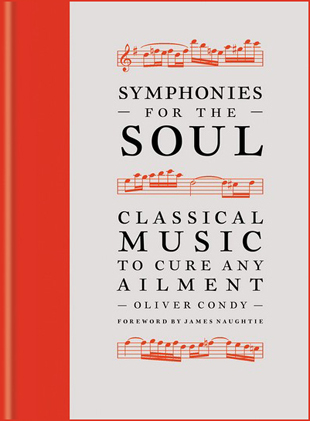Music breathes with the soul of our feelings, says an early nineteenth century source on the opening page of this wonderful book. This is so true. When words fail us, there is music both familiar and new to “speak” what we feel.
We tried using this book over a month-full of emotional ups and downs, and its examples seem to work. A renowned music educator, author Oliver Condy (longtime editor of BBC Music Magazine), does more than educate here. He offers classical music examples as prescriptions for experiences such as ailing faith, vanishing hope, routine laziness, and a lack of joy.
His language is unapologetically spiritual. “Music is a gift that nourishes the spirit in every possible way,” he begins. And throughout, short chapters are arranged alphabetically from “Abandonment” and “Anxiety” through “Guilt” and “Heartbreak” all the way to “Youthfulness (yearning for)” and “Zen (deficiency in).” Music heals.
The best recordings are recommended, so that you have the ideal example of, say, Bach’s “Fantasia and Fugue in G Minor” as a cure for feelings of humiliation, and Poulenc’s “Organ Concerto” “if you are feeling a little humourless (or know someone who is) and feel the need for a spot of mischief to crack that smile.”
The publication of this book demonstrates how thoroughly spirituality has infused aspects of life once thought to be separate from what is spiritual. Classical music needn’t be highbrow; isn’t only for fancy concert halls; but can heal the heart of every ordinary one of us.
An expansive index is helpful for locating your emotions and matching them with favorite composers and works or finding new ones, as your mood might dictate.
